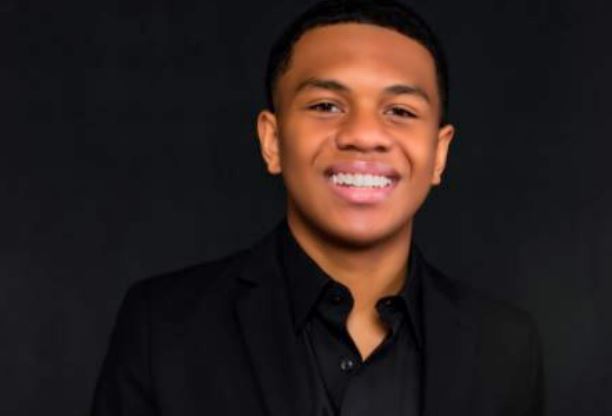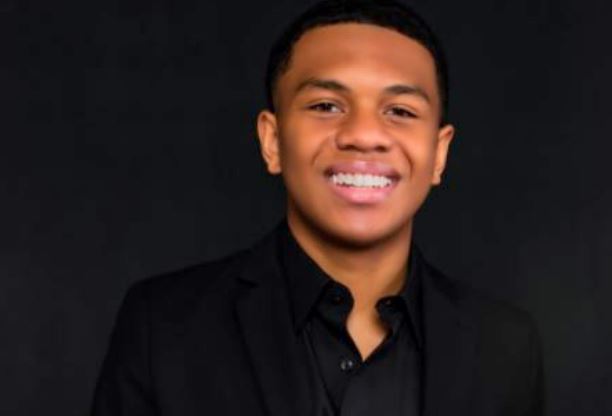 Ian Brock, co-founder of Dream Hustle Code, started his organization to provide engaging computer science and technology education to Black and Brown youth. Its programming has grown to include virtual tech field trips, after-school coding leagues and tours to Silicon Valley. (Courtesy Photo)
Ian Brock, co-founder of Dream Hustle Code, started his organization to provide engaging computer science and technology education to Black and Brown youth. Its programming has grown to include virtual tech field trips, after-school coding leagues and tours to Silicon Valley. (Courtesy Photo)
By Megan Sayles
AFRO Business Writer
Report for America Corps Member
msayles@afro.com
Born and raised in Chicago, Ian Brock is 17 years old. He is a senior in high school, but he doesn’t attend his local public school for education. After co-founding a nonprofit, Dream Hustle Code, in 2013, Brock required more flexibility to advance the organization so he turned to home-schooling.
He created Dream Hustle Code with the mission of imparting confidence and interest in computer science and technology to Black and Brown youth. From leading field trips to Silicon Valley to providing coding and personal development programming, Brock is working to make the tech industry more equitable.
The AFRO connected with the 17-year-old to learn more about his thoughts on diversity in tech and his journey with Dream Hustle Code. The conversation has been edited for clarity and length.
Q: When did you garner an interest in tech?
A: I was about eight years old. To be honest, I wasn’t always interested in tech, but it all started with a video that my mom came across on Facebook. It was titled “What Most Schools Don’t Teach.” It talked about the importance of computer science and how every kid in America should learn how to code.
She convinced me to watch it, and my first reaction while watching this video was that it was boring. Even though I saw people like Bill Gates and Mark Zuckerberg, I didn’t know them at the time, and I didn’t find them interesting.
What really got my attention was the fact that I saw two-time NBA champ Mr. Chris Bosh from the Miami Heat. He talked about his experiences with learning how to code and how he thought coding was cool. In my mindset as an eight-year-old, all I cared about was playing basketball and NBA 2K. Hearing from somebody who looked like me and was one of my favorite basketball players was what got me hooked.
Q: What made you want to start Dream Hustle Code?
A: In December of 2013, my parents and I ended up hosting this event called the Hour of Code at my elementary school. Basically all this event is is an introduction to learning basic coding for all ages. We had this at my elementary school, and we invited another school from the southside of Chicago. A bunch of my friends and peers all had an amazing time, and they actually continued doing the coding lessons they had learned over the weekend.
Parents started reaching out to us asking, “what is the coding thing, and why is my kid doing it at home without anyone telling them to?” A couple of other parents asked, “since you received all of this positive feedback, what’s the next step?”
That was a good question. We already knew that there was a lack of computer science being taught in the schools, and we knew that there was a lack of people representing us in the tech space. We decided to go all in, and that’s what started us on our journey with creating Dream Hustle Code.
Q: What do you think accounts for the lack of diversity in the tech industry?
A: I think, first and foremost, it’s the lack of exposure. Number two, kids in our community don’t necessarily see tech as a viable option for themselves. Typically, kids in Black and Brown communities see sports, entertainment and even social media influencers, and that inspires us to want to go in those fields. Why? Because we see people who look like us in those fields.
It’s the exact same way I got into tech in the first place. It was only because I saw somebody who looked like me and played my favorite sport, Chris Bosh. We don’t see enough people who like us and who are successful in the tech space being showcased.
On the flip side, the pot may not be as diversified because tech companies are not necessarily looking in the right places. They go to places that are comfortable and that they know, and everyone does that. What I think they should do is explore outside of these spaces. A great space as far as Black tech talent is HBCUs.”
Q: Why will access to computer science and technology education build generational wealth for Black and Brown communities?
A: Going into the tech space and being in computer science forces people to not just be consumers of technology but to be creators of technology, and that’s where the real wealth is being built. In our community, the first thing we think of when we get money is to spend instead of thinking how we can utilize the money to create something that not only helps other people’s lives but also builds our own wealth.
As of today, and I’m looking at the list on Forbes, eight out of the 10 wealthiest people on Earth all have a background in computer science and technology. They also built their wealth through tech companies that they either created or are a part of. That’s telling me that maybe tech is one of the most lucrative ways of building wealth.
But, to take that first step to even be put in a position to be successful, we have to change people’s mindsets. We have to give them the right personal development strategies to be prepared in the tech space. Next, you have to train them with the right skills in computer science and tech. Once they’re fully equipped with those skills, you have to pipeline them into job opportunities where they are making money because you can’t build generational wealth without money.
Help us Continue to tell OUR Story and join the AFRO family as a member – subscribers are now members! Join here!



